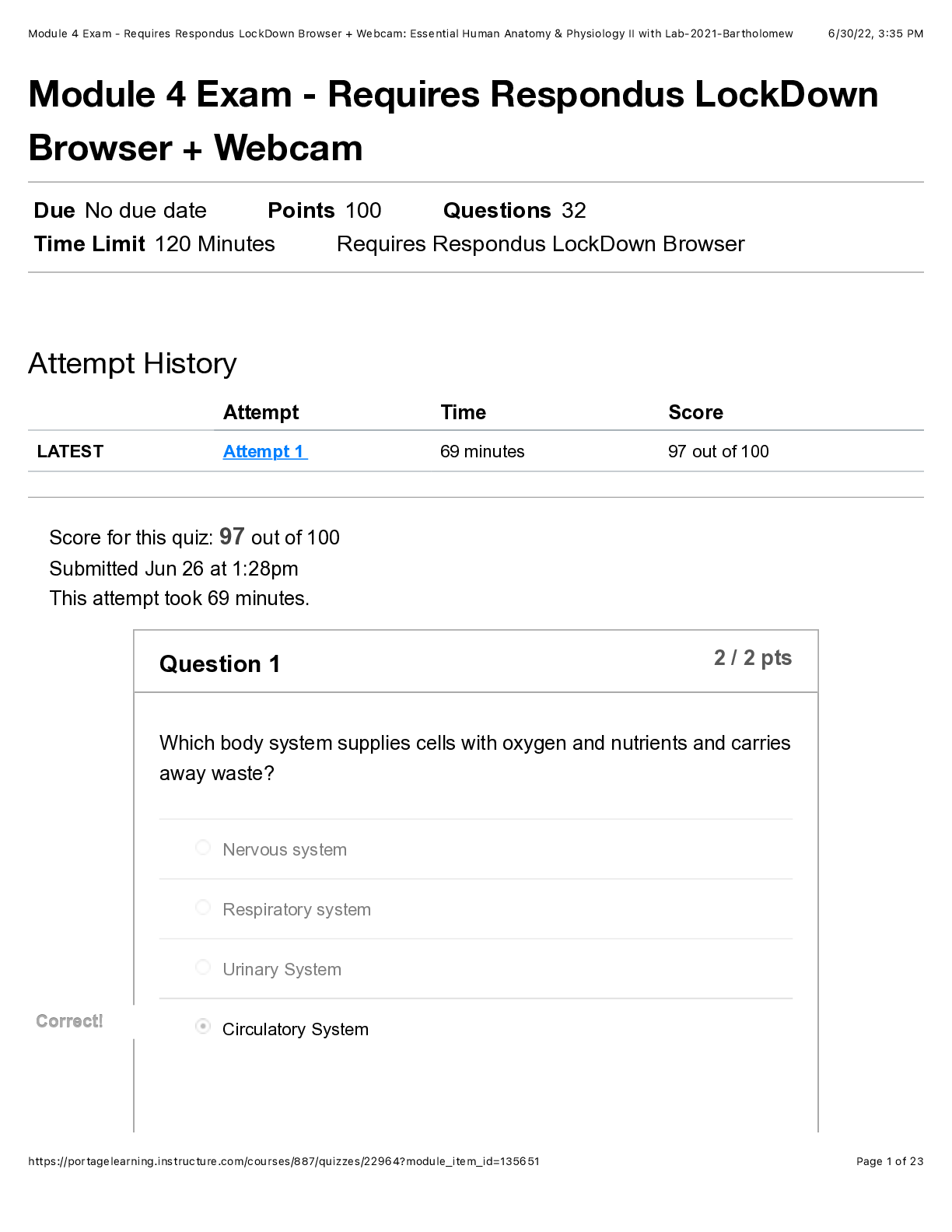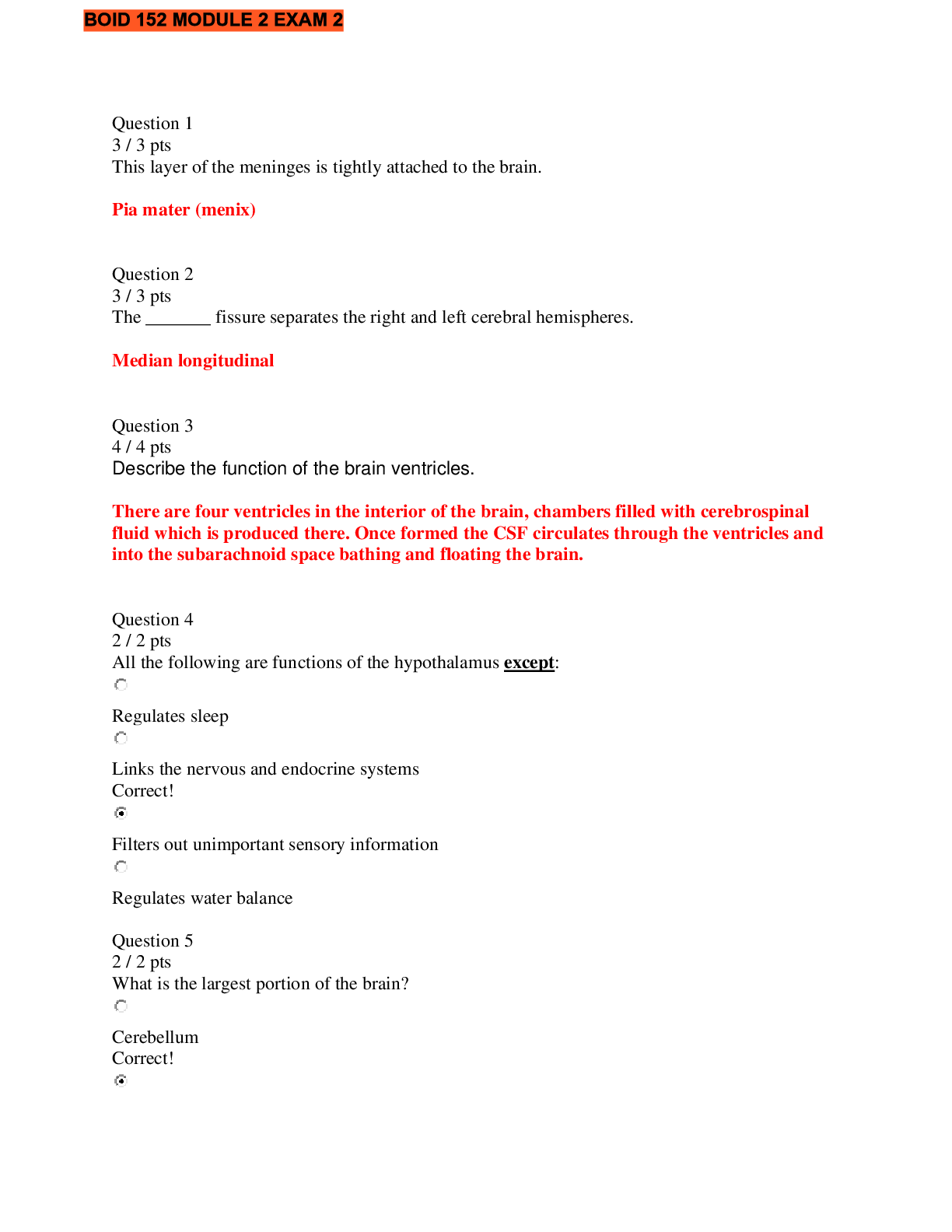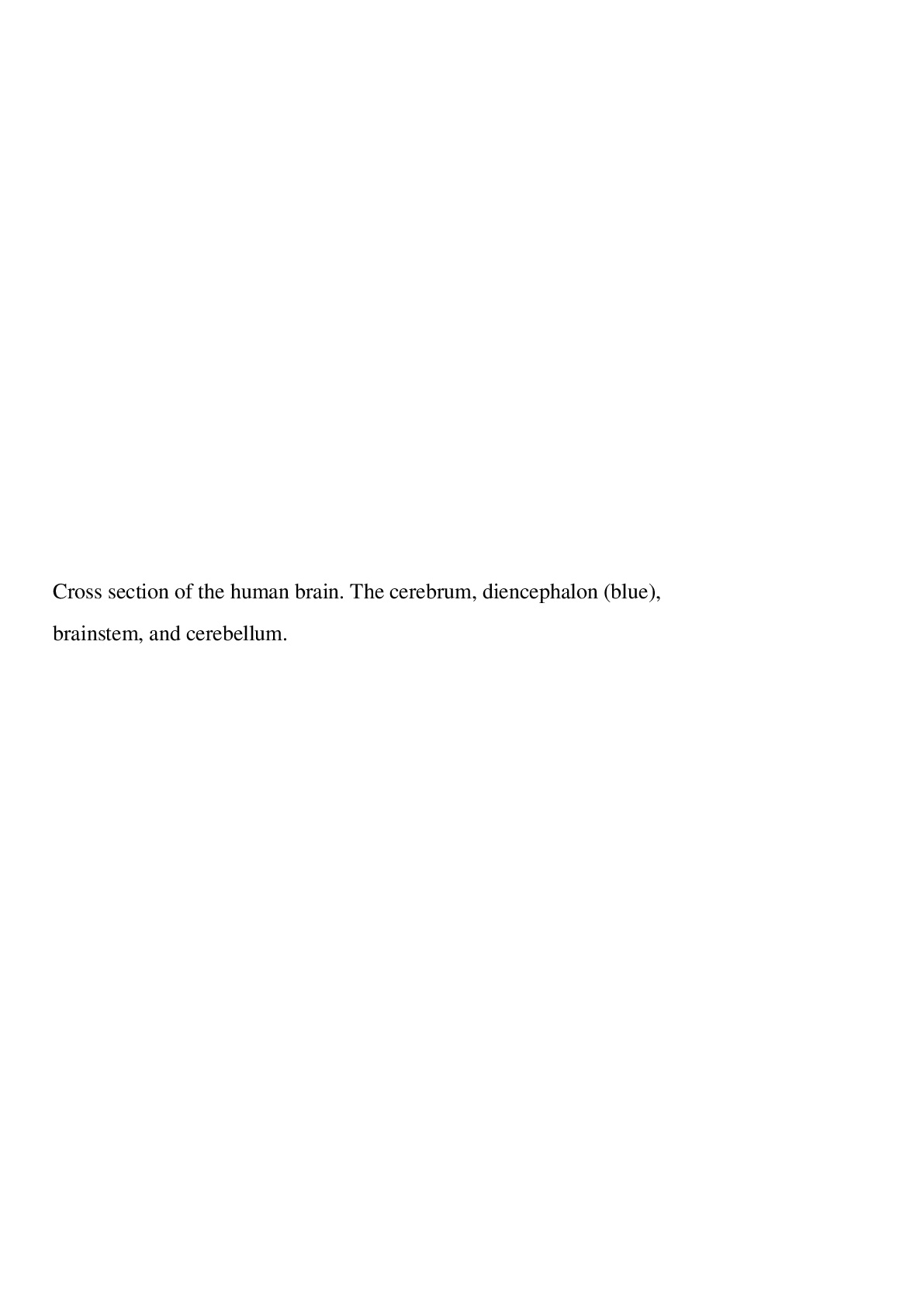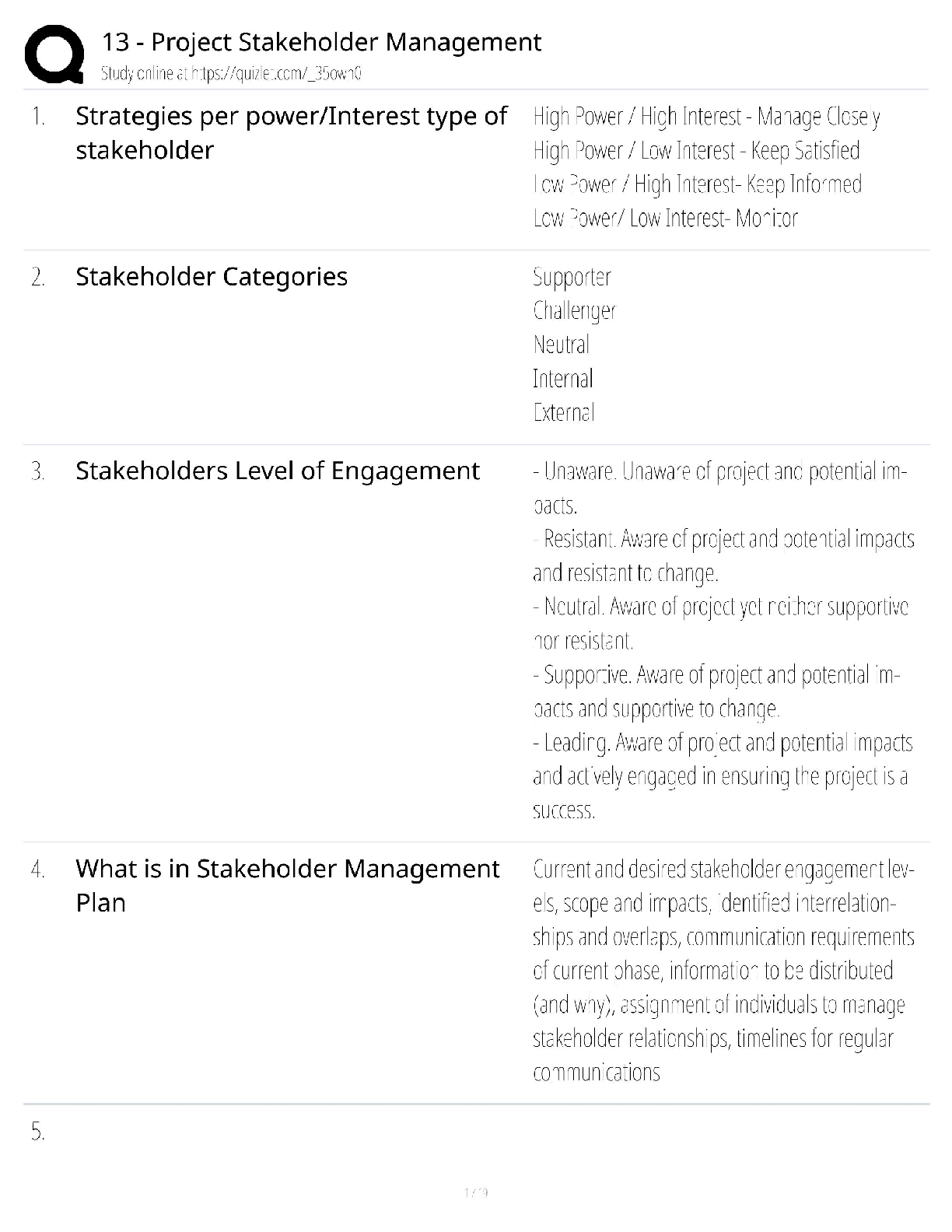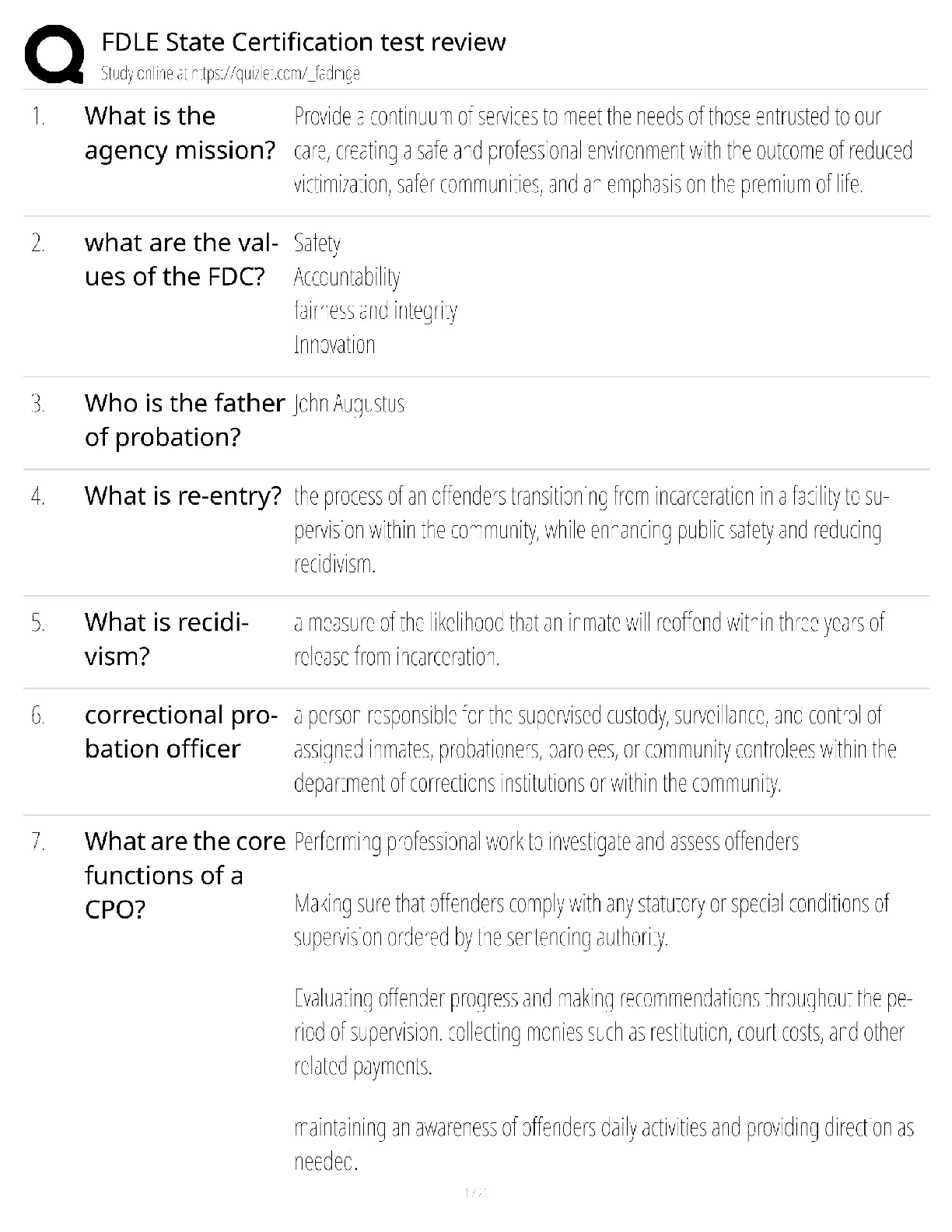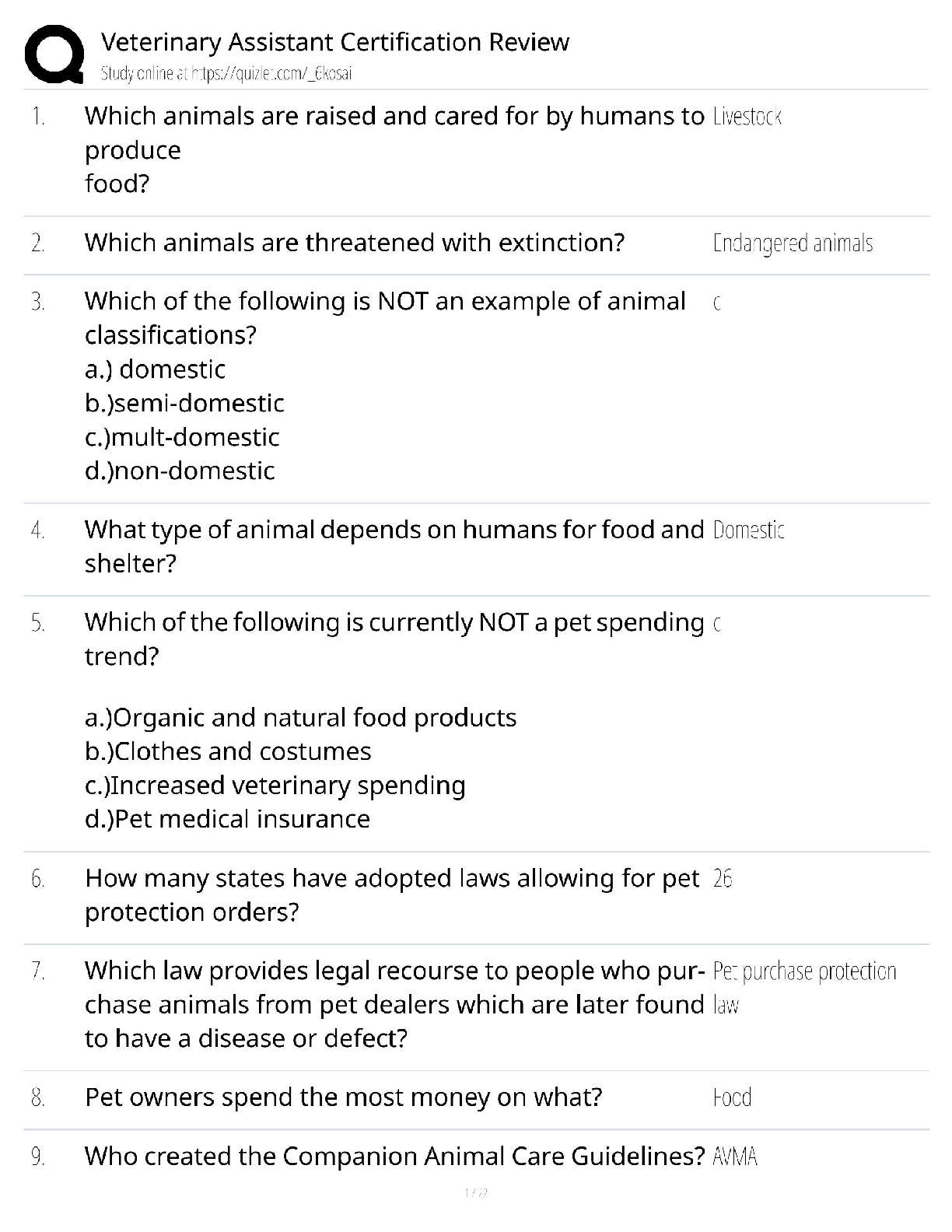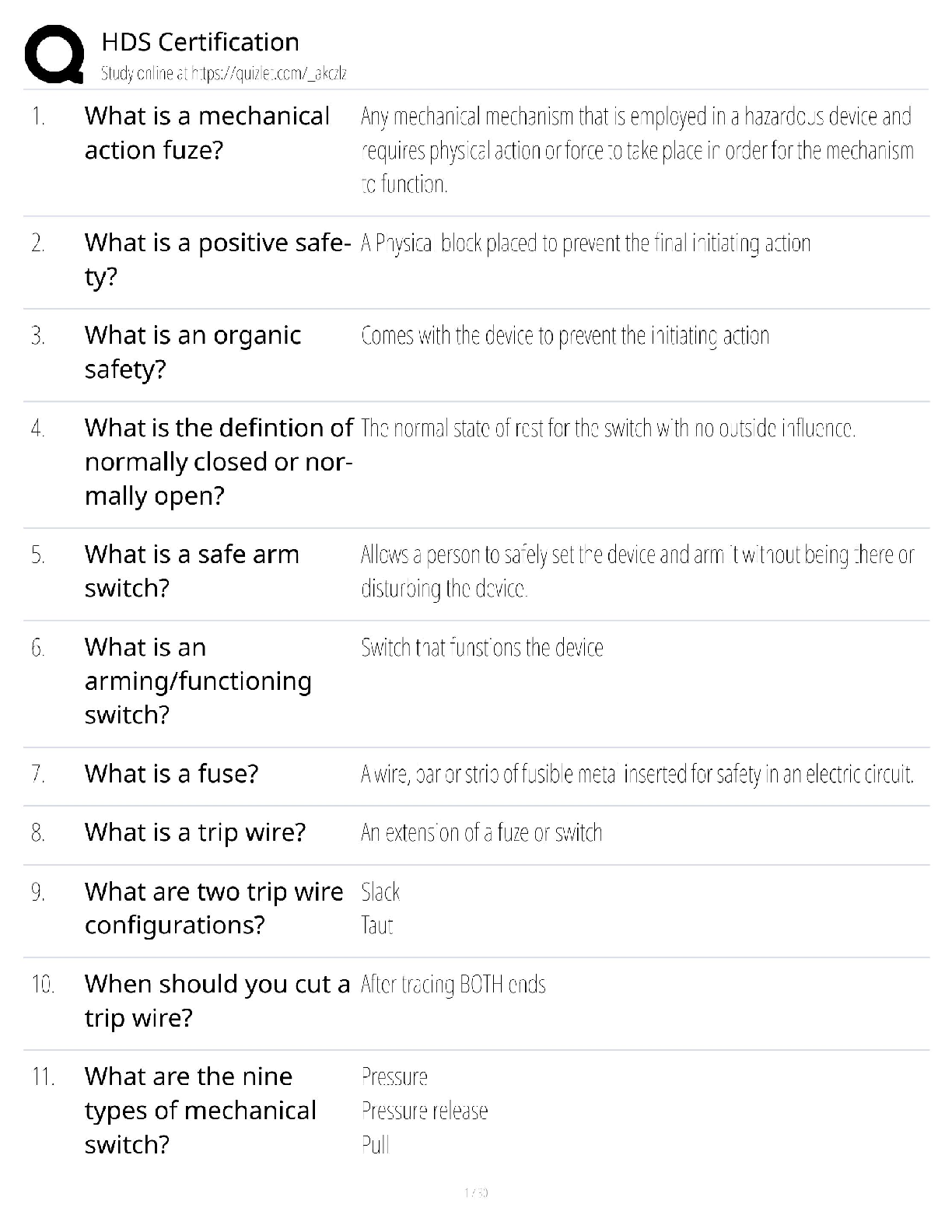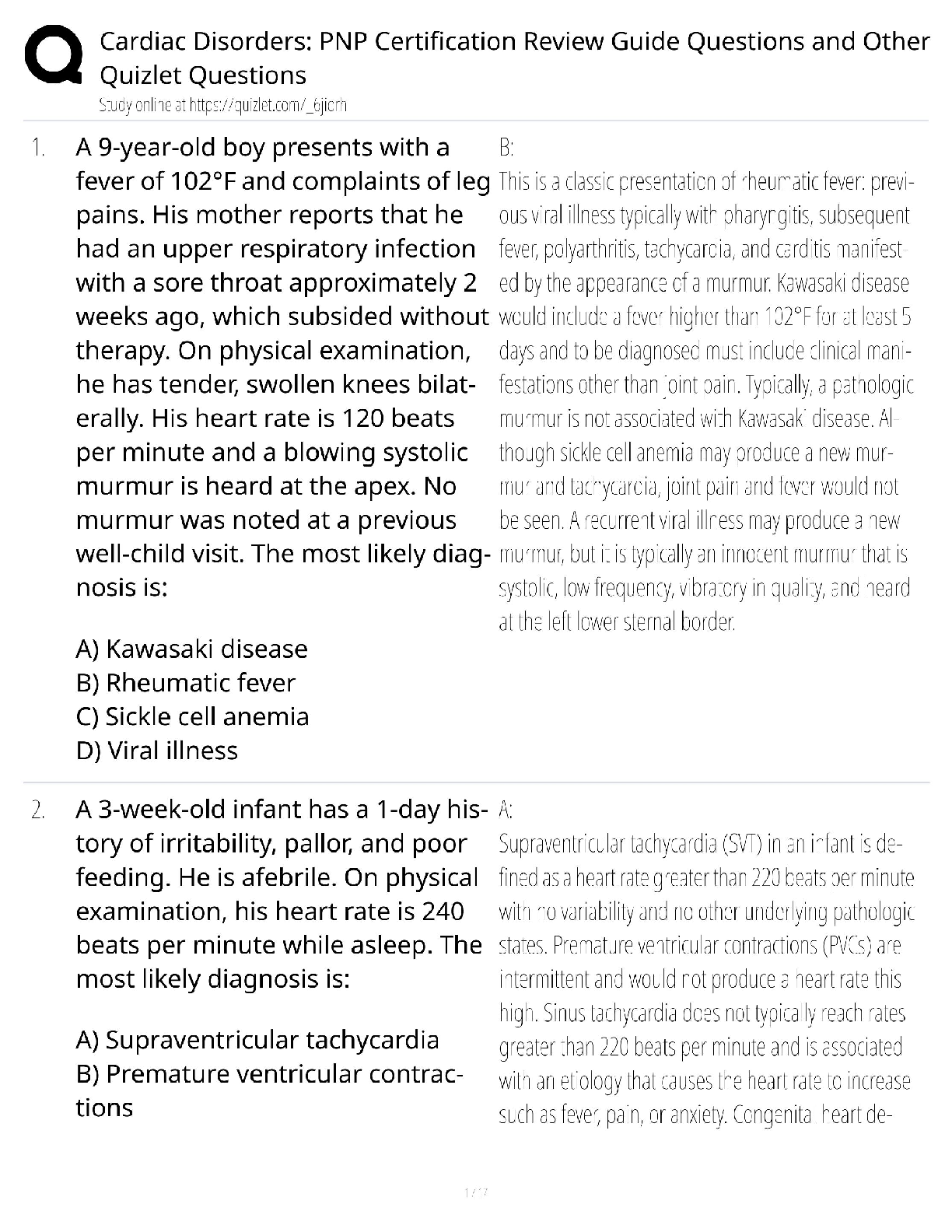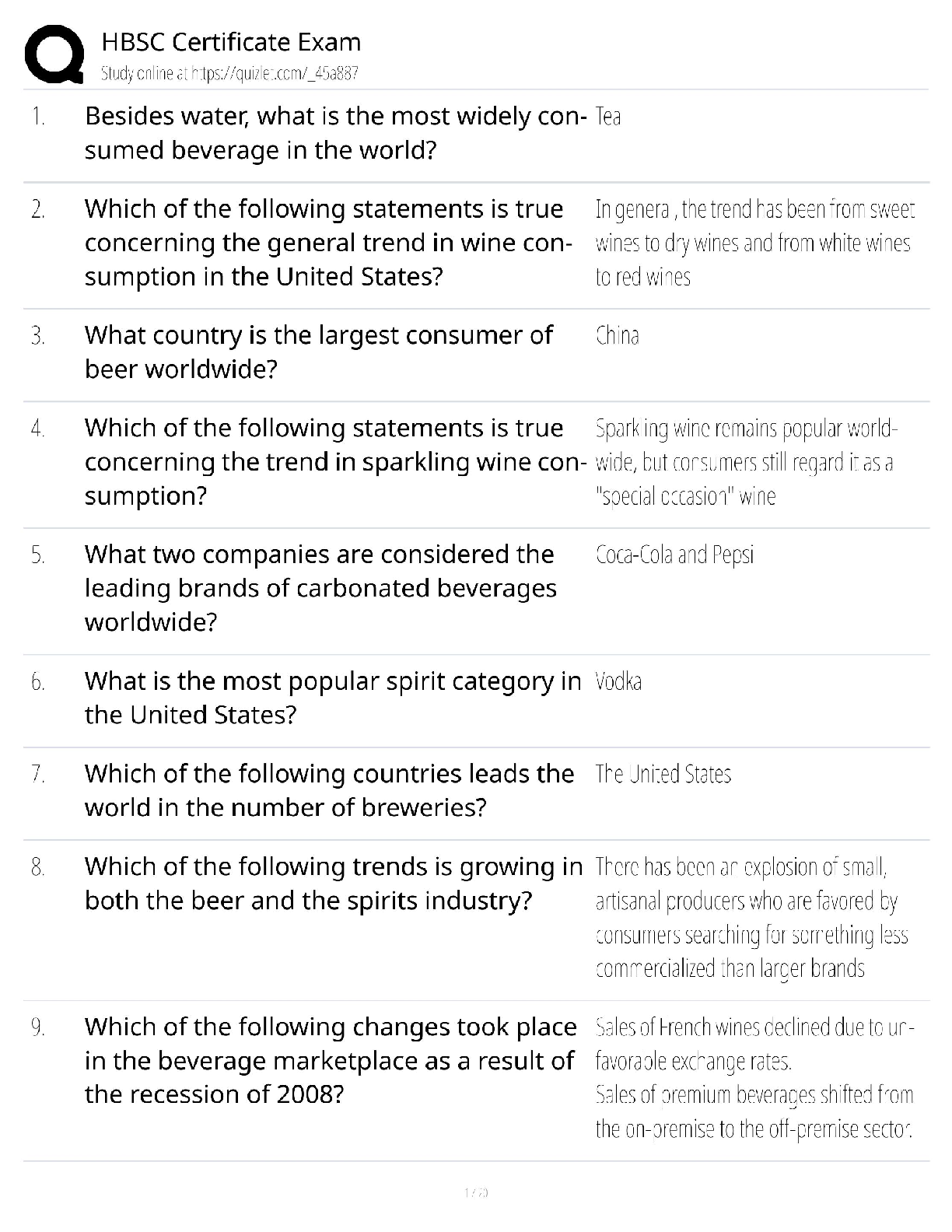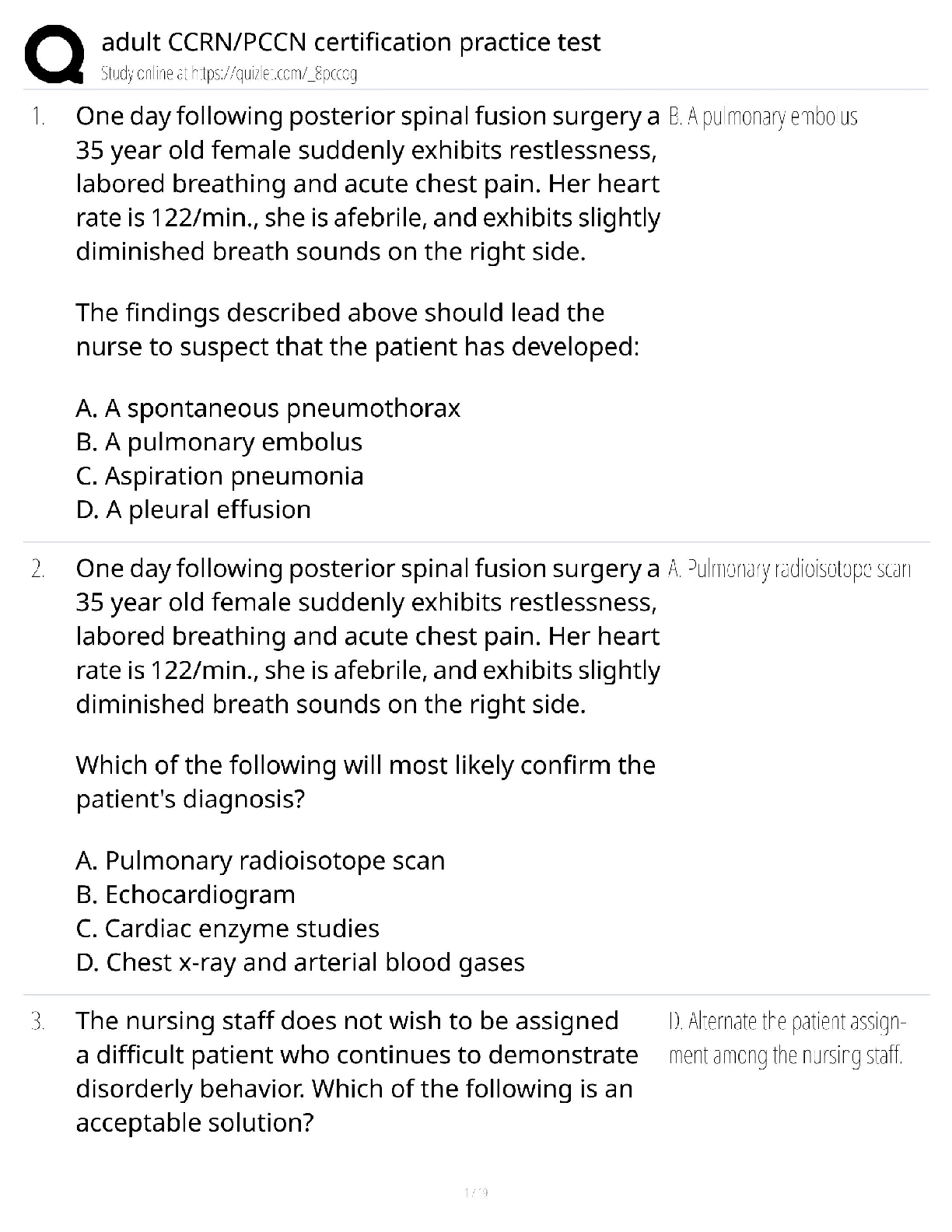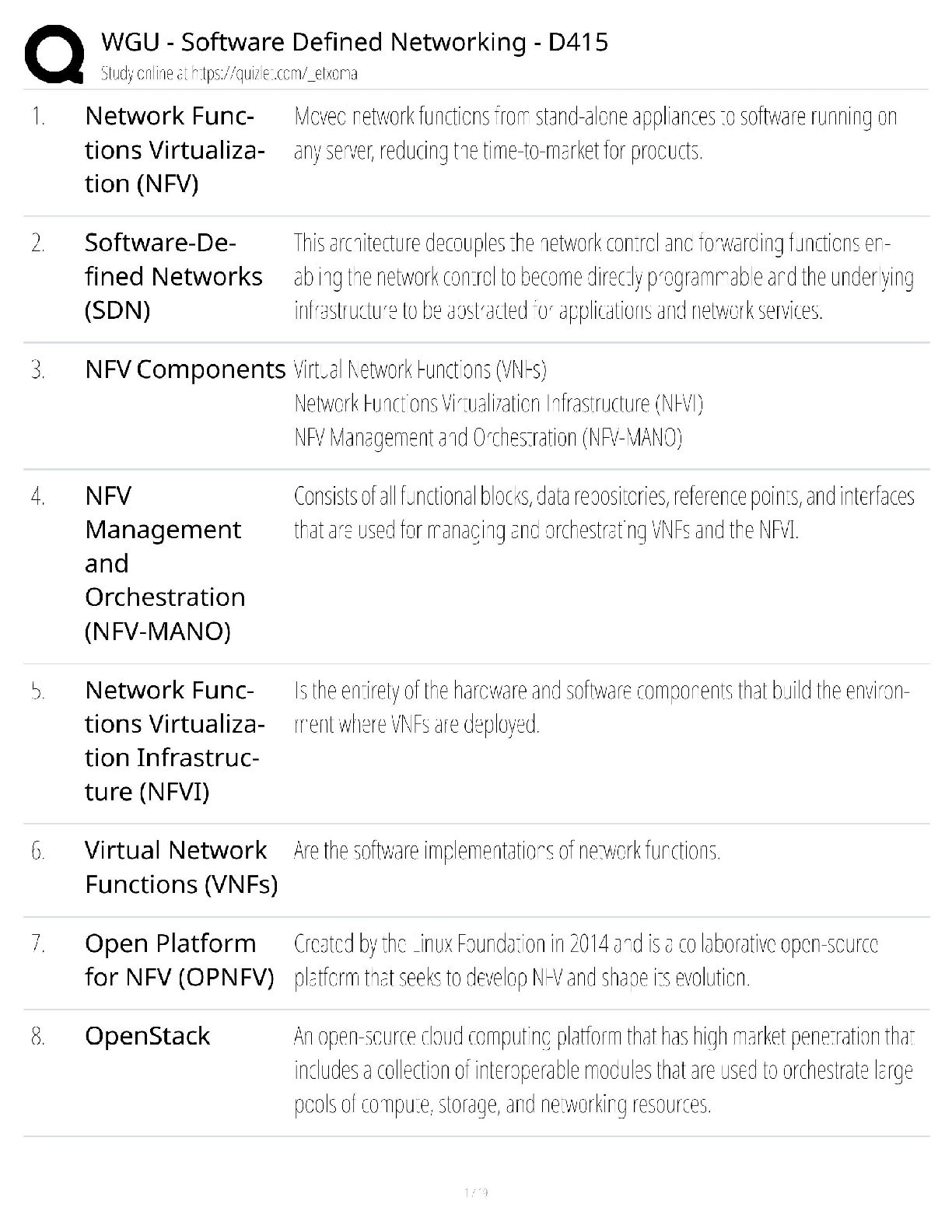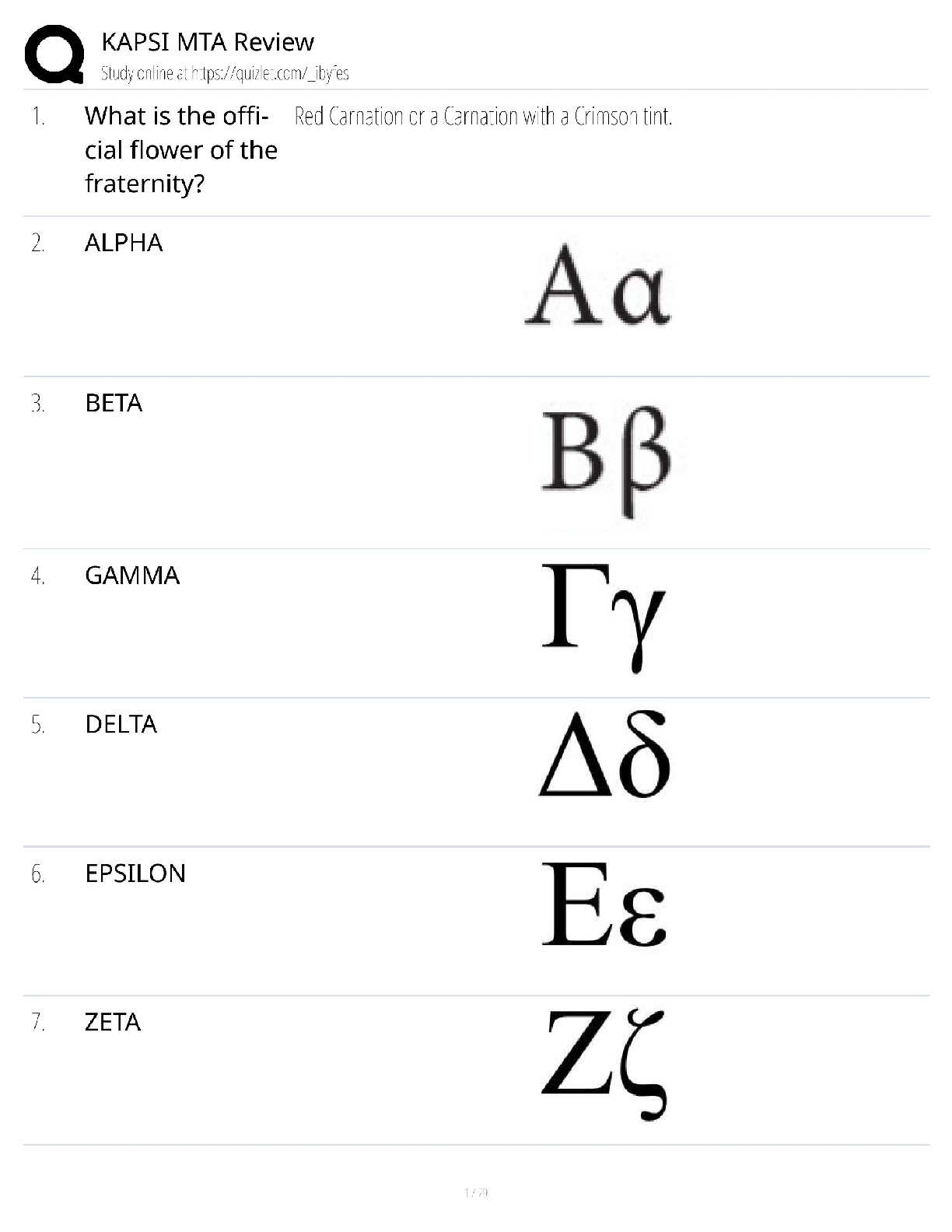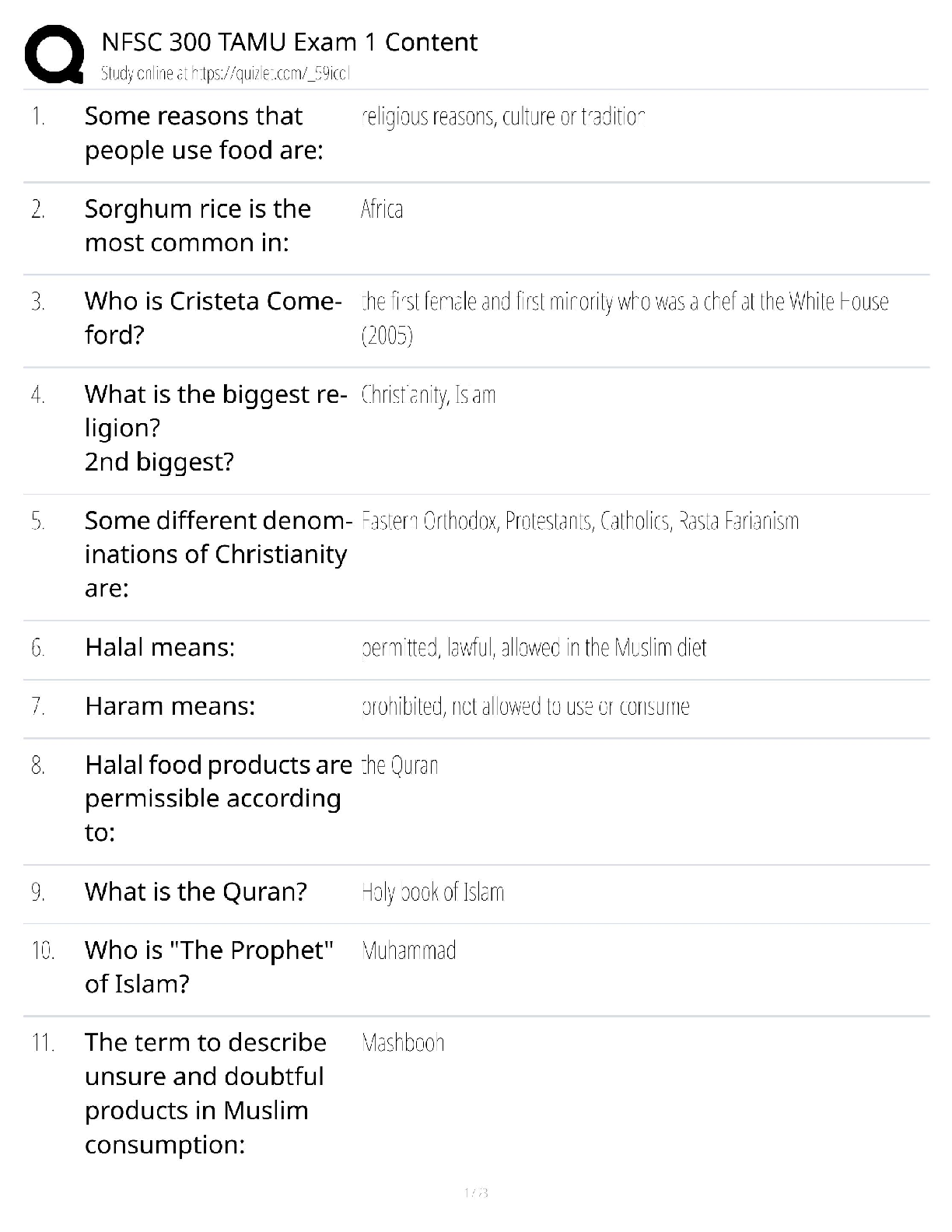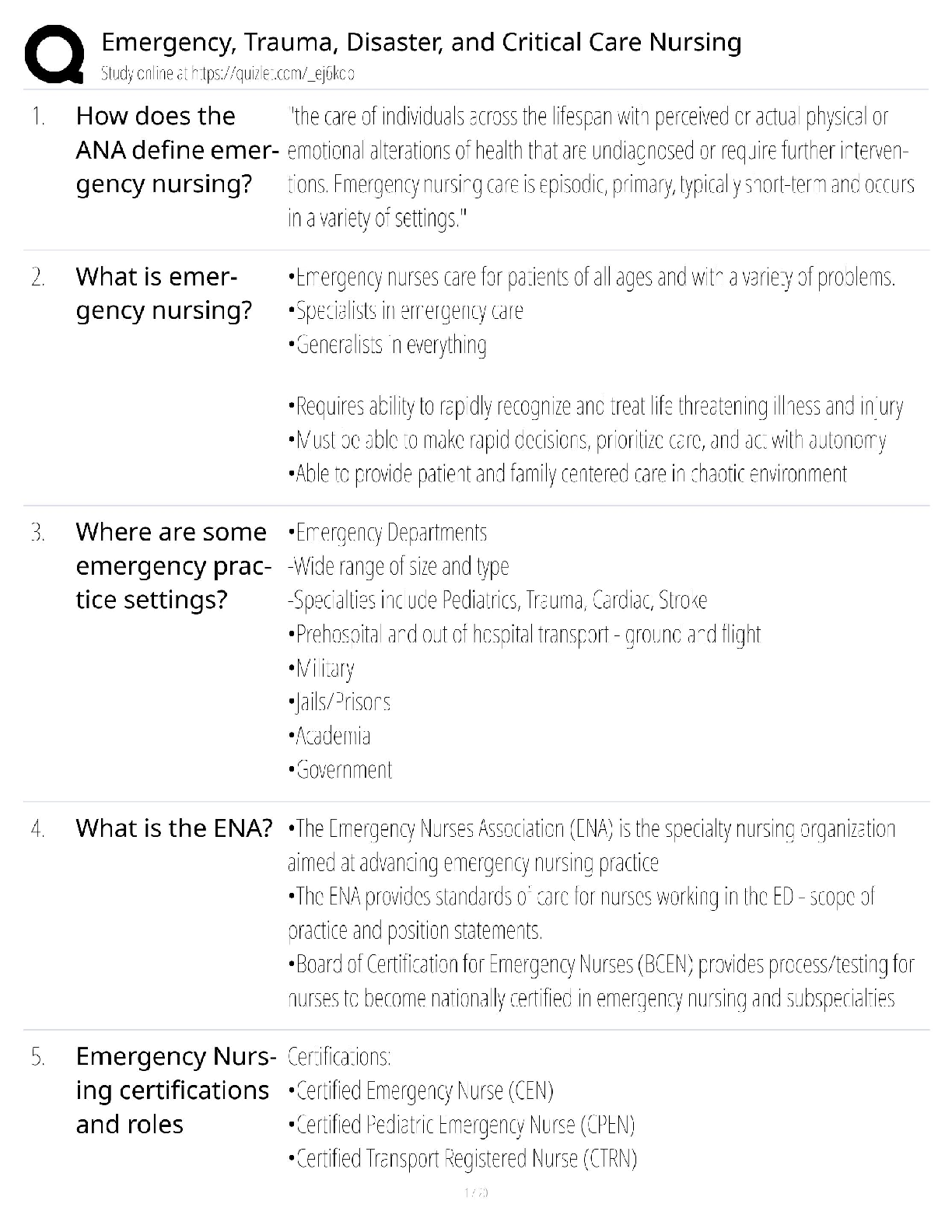Anatomy > QUESTIONS & ANSWERS > Topic 11: Functional Organization of Nervous Tissue. Questions with accurate answers. Rated A (All)
Topic 11: Functional Organization of Nervous Tissue. Questions with accurate answers. Rated A
Document Content and Description Below
Topic 11: Functional Organization of Nervous Tissue. Questions with accurate answers. Rated A Question 1 Correct 1.75 points out of 1.75 Flag question Question text A person who has seizure ... s might have a deficit of which of the following? Select one: a. GABA b. dopamine c. glutamate d. serotonin e. histamine Question 2 Correct 1.75 points out of 1.75 Flag question Question text A change in the resting membrane potential has the following characteristics (non-propagated, graded, can summate). This type of change can Select one: a. be a local potential. b. be an action potential. c. be a consequence of an increase in the permeability to Na+. d. result in repolarization. e. be a local potential and a consequence of an increase in the permeability to Na+. Question 3 Correct 1.75 points out of 1.75 Flag question Question text A neuromodulator Select one: a. acts as a neurotransmitter. b. inactivates neurotransmitters. c. is a receptor site for a neurotransmitter. d. has no influence on the amount of neurotransmitter released. e. is a substance released from neurons that influences the sensitivity of neurons to neurotransmitters. Question 4 Correct 1.75 points out of 1.75 Flag question Question text An action potential Select one: a. occurs when the local potential reaches threshold level. b. propagates across the plasma membrane in a decremental fashion. c. has no repolarization phase. d. is an example of negative feedback. e. cannot transmit information. Question 5 Correct 1.75 points out of 1.75 Flag question Question text The strength of a stimulus is communicated through Select one: a. changes in the magnitude of the action potential. b. the frequency of the action potentials. c. the length of time action potentials are produced. d. both the frequency and the length of time action potentials are produced. Question 6 Correct 1.75 points out of 1.75 Flag question Question text Enkephalins produce presynaptic inhibition in neurons transmitting pain signals. Increased levels of enkephalins will Select one: a. increase awareness of pain. b. decrease awareness of pain. c. increase amount of pain. d. decrease amount of pain. e. have no effect on awareness or amount of pain. Question 7 Correct 1.75 points out of 1.75 Flag question Question text Neurotransmitter is being released at a synapse. Which of the following occurs last? Select one: a. Calcium ions enter the presynaptic terminal. b. Synaptic vesicles release neurotransmitter by exocytosis. c. An action potential is produced in the postsynaptic membrane. d. Neurotransmitter flows rapidly across the synaptic cleft. e. Neurotransmitter binds with the receptor on the postsynaptic membrane. Question 8 Correct 1.75 points out of 1.75 Flag question Question text Which of the following is NOT a neuroglia of the CNS? Select one: a. ependymal cells b. satellite cells c. oligodendrocytes d. astrocytes Question 9 Correct 1.75 points out of 1.75 Flag question Question text Neurons arranged in a circular pathway form Select one: a. neuromotor junctions. b. temporal circuits. c. reverberating circuits. d. spatial pathways. Question 10 Correct 1.75 points out of 1.75 Flag question Question text Identify the statement that best differentiates gray matter and white matter. Select one: a. Gray matter consists of cell bodies and dendrites whereas white matter consists mostly of myelinated axons b. Gray matter consists of all parts of neurons and white matter is mostly glial cells. c. Gray matter consists of bundles of axons and white matter consists of groups of cell bodies and dendrites. Question 11 Correct 1.75 points out of 1.75 Flag question Question text The blood-brain barrier Select one: a. permits passage of foreign substances from the blood to the neurons. b. prohibits the transport of amino acids and glucose to the neurons. c. prohibits the removal of waste materials from the neurons. d. protects neurons from toxic substances [Show More]
Last updated: 2 years ago
Preview 1 out of 10 pages

Buy this document to get the full access instantly
Instant Download Access after purchase
Buy NowInstant download
We Accept:

Also available in bundle (1)
Click Below to Access Bundle(s)

All Anatomy and physiology topic questions with answers. Topics 1-17. 100% Accurate, latest updates
All Anatomy and physiology topic questions with answers. Topics 1-17. 100% Accurate, latest updates
By A grade master 2 years ago
$20
18
Reviews( 0 )
$7.00
Can't find what you want? Try our AI powered Search
Document information
Connected school, study & course
About the document
Uploaded On
Jan 04, 2023
Number of pages
10
Written in
All
Additional information
This document has been written for:
Uploaded
Jan 04, 2023
Downloads
0
Views
193



 (1).png)
